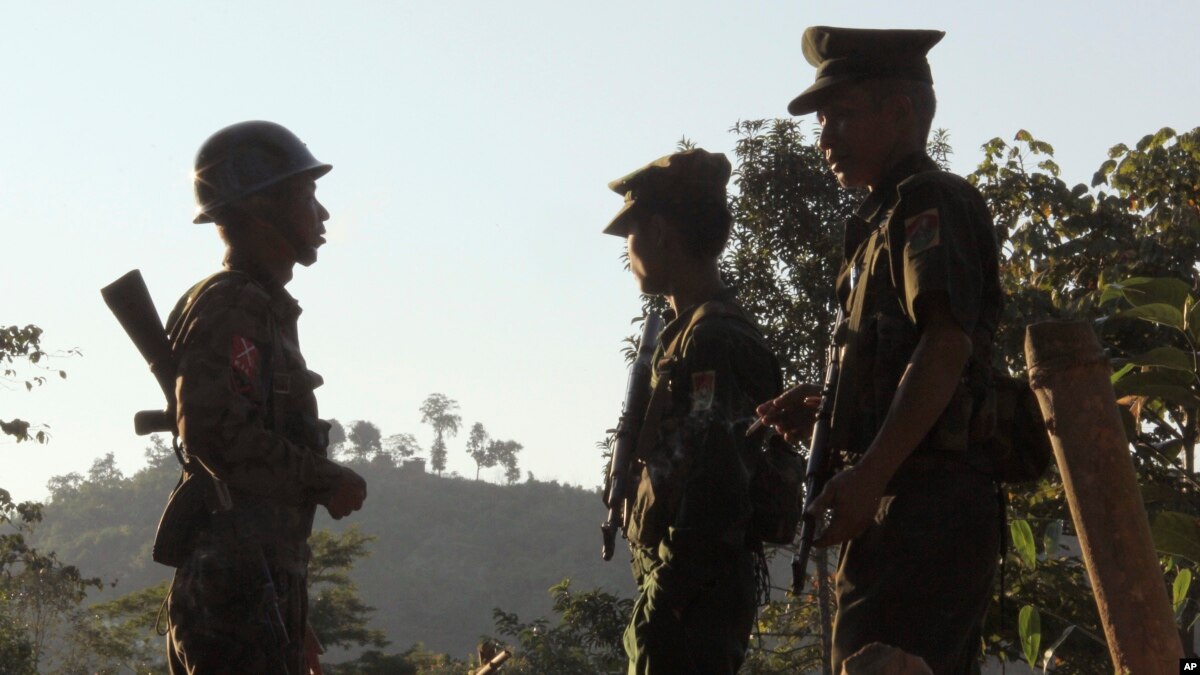
A reported deal for Myanmar to buy fighter jets from Russia is drawing criticism from some who say the country spends too much on the military and not enough on education and other priorities.
On January 22, the Russian news agency TASS reported that Myanmar is planning to buy six Su-30 fighter jets from Russia, in a deal that a Myanmar media report estimated at $200 million.
Myanmar government officials could not be reached for comment on the Tass report.
The deal was reached during Russian Defense Minister Sergey Shoigu’s visit to Myanmar, according to the deputy defense minister Lieutenant General Alexander Fomin, who said the planes would “become the main fighter aircraft of Myanmar’s air force to protect the country’s territorial integrity and repel any terror threats.”
Fomin added that an estimated 600 Myanmar military personnel are studying in Russia’s higher military educational institutions.
On January 25, U.S. State Department Spokesperson Heather Nauert told reporters the move was part of Russia’s “continued efforts” to arm militaries that violate human rights.
“While the Russian Federation says it favors constructive dialogue to resolve the crisis in Burma, the reports of plans to sell advanced military technology, if true, show otherwise,” she said.
The crisis she was referring to was the Myanmar military’s crackdown in northern Rakhine State, which has seen almost 700,000 people, overwhelmingly Muslim Rohingya, flee over the border into Bangladesh.
Many have arrived with harrowing tales of mass rape, torture and extrajudicial killings at the hands of the Myanmar military, which is known as the Tatmadaw. Authorities in Yangon have largely denied the accusations.
But even though the military operation in Rakhine State has largely attracted support domestically, some residents inside the country have criticized the high expenditure on the jets.
“Why do they need to spend that much? It could be spent on more schools, or better healthcare,” Thura Aung, a computer programmer in Yangon, told VOA.
When the country was under direct military rule, the ruling junta would regularly prioritize spending on defense over issues such as health and education.
The budget
For the budget for the 2017-18 financial year, the first under the administration led by the National League for Democracy, Myanmar, also known as Burma, set aside $2.1 billion to be spent on the Ministry of Defense, the third highest government expenditure behind Planning and Finance and Electricity and Energy.
Although spending on defense dropped slightly from the previous year, it was still more than spending by the Ministry of Education and the Ministry of Health and Sports combined.
It's not clear if they were linked, but days after the Russian announcement, protests were held at universities in Myanmar, calling for an increase in the country’s education budget.
Of those who protested, almost 40 students have been expelled from their universities, Sai Khaing Myo Tun, president of the Myanmar Teachers Federation told VOA.
“They were expelled immediately after the demonstration. We believe this is not a good way to deal with this situation … because we think this would make students scared, and not allow them to demonstrate,” he said.
He said that while he did not agree with the students’ approach, in which they reportedly tried to enter university classrooms, he supported their calls for the government to spend more on education.
“The salaries for teachers are still very low. There are still a lot of requirements for the development of education across the country,” he said.
In October, Myanmar ratified the International Covenant on Economic, Social and Cultural Rights, which obliges parties to work towards granting the rights of health and education to its citizens. The agreement went into force on January 6.
Sean Bain, a legal consultant for the International Commission of Jurists, said Myanmar signing the agreement meant it was obliged to protect people’s rights to health and education.
“A budget that prioritizes military expenditure to the detriment of health and education needs may be a violation of the state’s new international human rights law commitments,” Bain told VOA by email. “The next budget will be the first in which Myanmar’s government has to consider its new international law obligations to protect the right to health and education.”
Officials from the government and the NLD (National League for Democracy) could not be reached for comment on the size of government spending or the spending priorities of the Myanmar government.
Read More Amid Continued Criticism, Myanmar Still Spending Big on Military : http://ift.tt/2DT495P
No comments:
Post a Comment